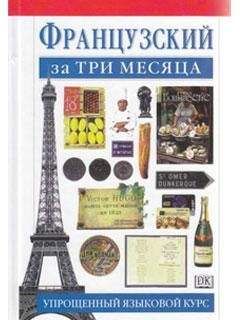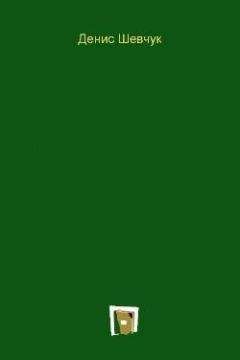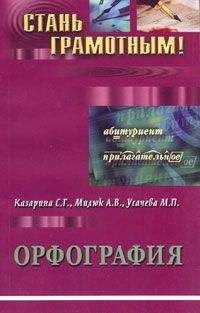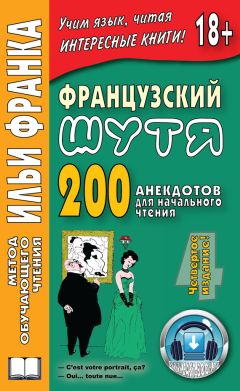Денис Шевчук - Английский язык: самоучитель
FOCUS ON GRAMMAR
Активная грамматика
Language focus 1Questions with there is/there are (more practice)
Вопросительныепредложения. Структураthere is/there are (дополнительнаяпрактика)
1. Match the sentences and their translations.
Подберите соответствующий перевод.
2. Complete the sentences.
Дополните предложения.
What is there…………………………………………………………………?
Is there………………………………………………………………………………?
There are some good…………………………………………………?
There aren’t any…………………………………………………………?
Is there any shop………………………………………………………?
What is there next to……………………………………………?
Are there……………………………………………………………………………?
There is a…………………………………………………………………………?
3. Put these sentences into the Past.
Скажите эти фразы в прошедшем времени.
Example: There is a museum next to the park.
There was a museum next to the park.
1. Is there a cafe next to the cinema?
2. Are there good restaurants in the town centre?
3. There isn't any accommodation for tourists here.
4. What is there next to the traffic lights?
5. There are shops round the corner.
6. Are very any swimming pools in your town?
7. There are signs there.
8. Who is there next to your friend?
9. There is nobody at the tourist information office.
Language focus 2The Future Simple (Indefinite) Tense
Будущее простое (неопределенное) время
Будущее простое время употребляется с такими наречиями времени, как
tomorrow – завтра,
tomorrow morning – завтра утром,
next week – на следующей неделе,
next year – в следующе мгоду,
next month – в следующем месяце,
in a month – через месяц,
the day after tomorrow – послезавтра,
tonight – сегодня вечером и т. д.
Будущее простое время образуется с помощью вспомогательного глагола will или shall плюс начальная форма глагола. Shall употребляется для первого лица единственного числа (I), а will – для всех остальных лиц и чисел. Однако форма shall считается несколько устаревшей, поэтому чаще всего вместо нее используется will. Сокращенная форма– 'll.
I shall/will show you the way.
He will take me to the zoo tomorrow.
She will buy a leaflet for you.
They will build a new railway bridge next year.
He’ll stay here tomorrow.
Вопросительные и отрицательные предложения:
Shall/Will I turn left at the crossroads?
I shan’t (shall not)/won’t (will not) forget about it.
We won’t go over this plan tomorrow.
Will she meet you at the international conference?
We won’t confirm your plan.
When will you discuss the possible problems?
Who will come to you tomorrow?
She won’t be there next weekend.
4. Put the sentences into the Future Simple Tense.
Составьте предложения в простом будущем времени.
My friend calls me every evening.
Do they work out a new plan every day?
Where does he always buy these souvenirs?
I don't go past the traffic lights.
Who follows them every weekend?
She doesn't work at the business estate.
Probably, she is an officer.
I look for new accommodation in the city centre.
This shopping centre is very attractive for tourists.
Those exercises are very easy for me.
5. Ask Questions. Give negative answers.
Задайте вопросы. Дайте отрицательные ответы.
6. Make up your own sentences with adverbs of time and the verbs given.
Составьте предложения с наречиями времени и данными глаголами.
Например: yesterday, to show
Yesterday she showed me the way to the market.
tomorrow, to serve
next year, to visit
now, to build
three days ago, to use
last month, to tell
tonight, to study
every day, to order
in 1997, to develop
tomorrow morning, to give
7. Translate into English.
Переведите на английский язык.
1. Наша встреча не будет эффективной без него.
2. Где вы будете обсуждать эти вопросы?
3. Кто изучит в деталях эти планы на следующей неделе?
4. Они не принесут наш заказ в следующую пятницу.
5. Жизнь будет более приятной в следующем веке.
6. Это будет самая энергичная вечеринка в моей жизни.
7. Мы снова получим ваше сообщение в следующую субботу.
READINGAND SPEAKING PRACTICE
1. Answer the questions.
Ответьте на вопросы.
1. You like to see new places, don't you?
2. Where will you go next summer?
3. What souvenirs will you buy for your friends?
4. Who will show you the sights?
5. How will you use the map of the place?
6. What accommodation will you prefer?
7. What will make your trip more enjoyable?
8. Will you go to the same place again in a year?
9. What are your plans for the next week?
10. What appointments do you have for the next week?
2. Make up stories using the words.
Составьте короткие рассказы с данными словами.
A. atmosphere, leaflet, nowadays, timetable, visit, unspoilt, mainly, in fact, cost, guest house, size.
B. peaceful, accommodation, souvenir, attractive, indeed, on the right-hand side, museum, map.
C. tomorrow, appointment, effective, confirm, next week, go over, full of, call, message, hectic, I’m afraid.
D. so-so, forget, international, make sure, officer, follow, probably, opposite, show, traffic light.
3. Make up sentences in different tenses using the verbs.
Составьте предложения в разных временах, используя перечисленные глаголы.
The Present Simple/Indefinite Tense (usually, always, seldom, never, every day, every weekend, often)
discusses, doesn’t call, don’t go over, show, uses, don’t serve
The Past simple/Indefinite Tense (yesterday, last week, three days ago, in 1986)
brought, understood, saw, didn’t order, didn’t come, gave, didn’t paint
The Future Simple/Indefinite Tense (tomorrow, next year, in the future, in a week)
will move, won’t rent, will cook, shall watch, shan’t write, won’t ride
The Present Continuous/Progressive Tense (now, at the moment)
am swimming, is waiting, are driving, isn’t studying, aren’t preparing, am not building
4. Answer the questions. Pay attention to the use of different tenses.
Ответьте на предложенные вопросы. Обратите внимание на использование различных грамматических времен.
5. Read the dialogue. Close your eyes. Say what you remember.
Прочитайте диалог. Закройте глаза и расскажите все, что Вы запомнили.
A.
Patient: Can I speak to Doctor Watson, please?
Receptionist: I’m afraid you can’t, sir. He’s with a patient. Would you like to make an appointment?
Patient: How about this afternoon?
Receptionist: I’m sorry. The doctor will play golf this afternoon.
Patient: Pardon? Could you say that again?
Receptionist: The doctor will play golf this afternoon.
Patient: Well, can I see him tomorrow?
Receptionist: I’m afraid you can’t, sir. He’ll be at the hospital tomorrow?
Patient: How about next week?
Receptionist: Next week the doctor will be at the international meeting.
Patient: Next month?
Receptionist: Doctor Watson will be on holiday next month. In Australia. For six weeks. So you can see the doctor at two o’clock in the afternoon on the seventeenth of May …Next year. Is that all right, sir?
6. Read this text.
Прочитайте текст.
Elizabeth Moodie, a Tourist Information Officer
Elizabeth Moodie works as a tourist information officer. She works in Marlow, a small town on the river Thames not far from London.
Mainly she is here to help people. They always want something and it’s her job to make sure that they get it.
Elizabeth helps some tourists.
Tourist 1: Are there any restaurants in Marlow where I can take my two children?
Elizabeth: In fact there are several. Turn right into Pound Street – let me show you. You are here. Go along Pound Street to these double roundabouts. Turn left to High Street and there are several restaurants and cafes on the left-hand side.
Tourist 2: I have an appointment at the Globe Park Business Estate. Could you tell me the way there?
Elizabeth: Right. You leave this car park and turn right. Let me show you on the map – it is probably easier. Follow that road. You will come to a large roundabout. Turn right again and the Globe Park will be on the right-hand side.
Tourist 3: Good afternoon. I’m looking for accommodation in the area.
Elizabeth: Yes, I see. Do you want a hotel or a guest house?
Tourist 3: A hotel would be fine.
Elizabeth: This leaflet will give you the information about the hotels in Marlow.
The river makes Marlow attractive to visitors. And the town is unspoilt. It has a very happy atmosphere and it’s peaceful, and I think that it’s important nowadays.
Are the sentences true or false?
Верны или не верны данные предложения?
1. Elizabeth is a tourist in Marlow.
2. Elizabeth works in a small town.
3. She shows the tourist the way to some restaurants.
4. Tourist 2 has an appointment and doesnЎЇt know the way to the place.
5. The Globe Park is on the right.
6. Elizabeth thinks that Marlow has a spoilt atmosphere.
Elementary, My Dear Watson
one lovely evening, the detective Sherlock Holmes and his trusty friend Dr. Watson went on a camping trip. After having dinner and drinking a few glasses of wine, they became tired and went to sleep. A couple hours passed and Sherlock Holmes awoke, and shortly thereafter woke Dr. Watson as well. He said, «Watson, look up, and tell me what you see.»
Dr. Watson replied, «Well, sir, I see millions of stars in the sky.»
Sherlock Holmes asked, «And what does that tell you?»
Dr. Watson paused for a moment and said, «Well, astronomically it tells me that there are billions of stars and possibly millions of galaxies in the universe. Astrologically, it tells me that Saturn is in Leo. Horalogically I can deduce that it is approximately quarter past three in the morning. Theologically it symbolizes that God is magnificent and that we humans are small and insignificant in the universe. And meteorologically, I suspect that we will have a beautiful day tomorrow.»
To which Sherlock Holmes replied, «No, stupid! Someone has stolen our tent!»
Restless God
in the beginning, god created Earth and rested.
Then God created man and rested.
Then God created woman.
Since then, neither God nor man has rested.
A Driving Debacle
a guy was driving when a policeman pulled him over. He rolled down his window and said to the officer, «Is there a problem, Officer?»
«No problem at all. I just observed your safe driving and am pleased to award you a $5,000 Safe Driver Award. Congratulations. What do you think you're going to do with the money?»
He thought for a minute and said, «Well, I guess I'll go get that drivers' license.»
The lady sitting in the passenger seat said to the policeman, «Oh, don't pay attention to him – he's a smart ass when he's drunk and stoned.»
The guy from the back seat said, «I TOLD you guys we wouldn't get far in a stolen car!»
At that moment, there was a knock from the trunk and a muffled voice said, «Are we over the border yet?»
An O'Malley Coincidence
a man stumbles up to the only other patron in a bar and asks if he could buy him a drink.
«Why, of course,» comes the reply.
The first man then asks, «Where are you from?»
«I'm from Ireland,» replies the second man.
The first man responds, «You don't say, I'm from Ireland too! Let's have another round to Ireland.»
«Of course,» says the second.
Curious, the first asks, «Where in Ireland?»
«Dublin», comes the reply.
«I can't believe it, me too! Lets have another round of drinks to Dublin».
«Of course».
The second man can't help himself so he asks, «What school did you go to?»
«Saint Mary's», replies the first man. «I graduated in 62.»
«This is becoming unbelievable!!!» the second man said.
About that time, in comes one of the regulars and sits down at the bar. «What's up?» he asks the bartender.
«Nothing much», replied the bartender. «The O'Malley twins are drunk again!»
Tongue Twisters – Скороговорки
i scream, you scream, we all scream for icecream!
If Stu chews shoes, should Stu choose the shoes he chews?




